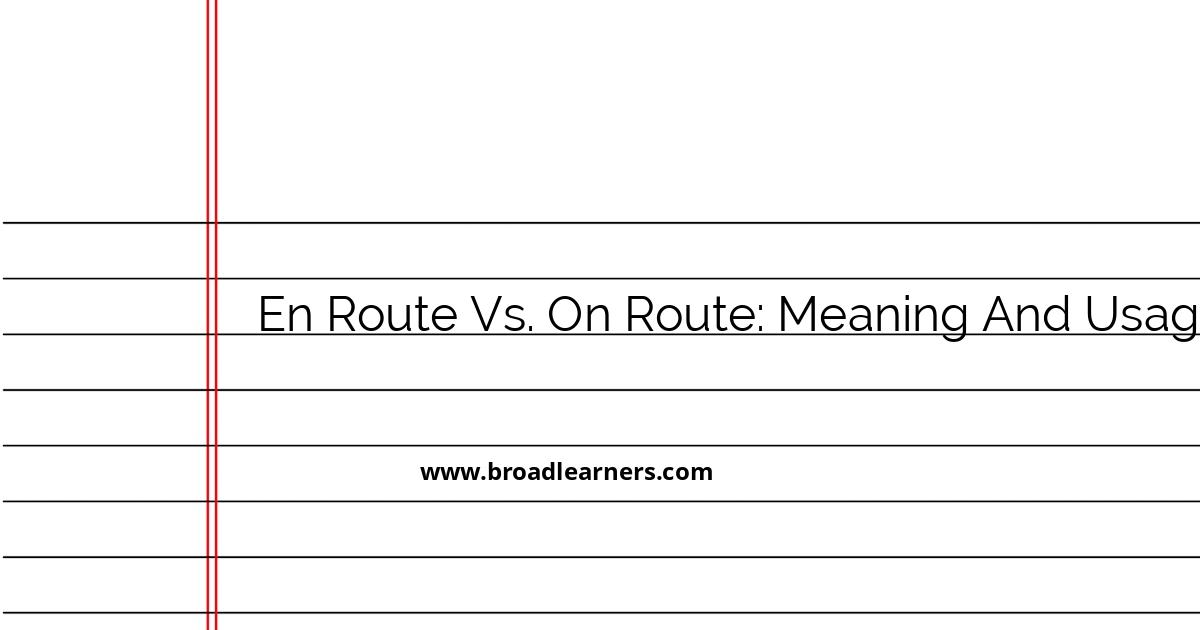In English language discussions, it's common to encounter confusion between the expressions 'en route' and 'on route.' Understanding the nuances between these terms is important for clear and effective communication. In this article, we'll explain the meaning and usage of both expressions and provide examples to help you grasp their correct application.
- 1. En Route
The phrase 'en route' is derived from French and means 'on the way' or 'in transit.' It is typically used in contexts involving travel or a journey, indicating that someone or something is in the process of moving toward a destination.
Example:
After the meeting, the team was en route to the conference venue.
Here, 'en route' is used to express that the team is currently traveling toward the conference venue.
Grammar Note:
'En route' is used as an adverb and should be placed appropriately within a sentence. Since it retains its French origins, it's often italicized in formal texts.- 2. On Route
The phrase 'on route' is less commonly used, but it can occur in informal contexts where it is used interchangeably with 'en route.' However, 'on route' is not traditionally recognized as standard English, making 'en route' the preferred expression in formal writing or speech.
Example:
The package is on route and should be delivered by tomorrow.
In the given example, 'on route' is used colloquially to indicate that the package is on its way to the intended destination. Nevertheless, using 'en route' is generally recommended.
Grammar Note:
While 'on route' can sometimes appear in casual conversation, it is advisable to adhere to 'en route' in professional and academic settings to ensure clarity and correctness.
To enhance your understanding, let's review some helpful tips for usage:
- While 'en route' maintains its French influences, it is widely accepted in English.
- Use 'en route' for formal writing to ensure adherence to standard English conventions.
- 'On route' might be used informally but lacks the formal recognition of 'en route.'
By understanding the subtle differences between these expressions and knowing when to use them appropriately, you can effectively convey your message whether discussing travel plans or monitoring the status of a delivery in a professional context.

Did I miss anything? Respond below